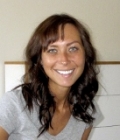|

Elena Shvidko
|
|

Icy Lee
|
Elena: The Symposium on Second Language
Writing (SSLW) took place last month, where you gave a plenary
talk about the role of written corrective feedback. Since not all of
our readers could attend, would you mind sharing some highlights of your
talk with us?
Icy: Yes, I gave a plenary talk at the last
SSLW held in Auckland on a practice-based issue about written corrective
feedback (WCF). The title of my talk was “Working hard or working
smart: Comprehensive versus focused written corrective feedback in L2
writing.” In the talk, I began by establishing the centrality of the
topic of WCF in second language (L2) writing. Knowing that probably not
everyone in the audience was familiar with the topic, I then attempted
to clarify key terminology including comprehensive
WCF, selective WCF, unfocused
WCF, and focused WCF. I presented these
terms on a continuum and argued that, particularly for classroom
teachers, it might be more useful to adopt the terms comprehensive WCF to refer to teachers’ attempt to
respond to all written errors, as well as focused WCF
or selective WCF to refer to an alternative approach
where teachers respond to a number of error types. After that, I
presented some research highlights on comprehensive and focused WCF. The
rest of my talk focused on some major practice-based issues regarding
WCF, such as why teachers should consider a focused approach to WCF,
arguments for and against it, how they should go about error selection,
whether and how focused WCF should be combined with comprehensive WCF,
what WCF strategies teachers can use, and finally what “good” WCF
is.
Elena: WCF has been a popular topic in
second language writing research for quite a while. How did the
approaches to this issue change over the years? What do we know about
WCF now that we didn't know before?
Icy: The development of WCF research is
interesting. Decades ago, writing teachers responded to student written
errors meticulously, embracing an error avoidance approach without
questioning their own taken-for-granted assumptions about their
practice. Then John Truscott published his landmark article “The case
against grammar correction in L2 writing classes” in Language
Learning in 1996 and put forward a radical view about the
harmfulness of error correction. Since then, WCF has become an
exceedingly vibrant topic for research. Researchers began to address
various aspects of WCF, including its overall efficacy, comparing direct
with indirect WCF, and focused with comprehensive WCF. Now, I think we
have research evidence to show that WCF does have an important role to
play in the L2 writing classroom and that it should not be
abandoned.
Elena: What issues in current research on
feedback do you find most interesting? What excites you as a
scholar?
Icy: Since I began my career as a secondary
school teacher having to mark tons of compositions on a regular basis, I
am most interested in classroom-based research that carries direct
implications for frontline teachers. Although research has pointed to
focused WCF as a more desirable approach to written feedback, teachers
in Hong Kong are still spending a massive amount of time responding to
errors in student writing and embracing comprehensive WCF as a rule of
thumb. Although many teachers do not find comprehensive WCF effective
and cost-effective, very few of them are brave enough to change this
ingrained practice. Thus, I am very interested in research that looks
into the effects of focused WCF. I hope that teachers in Hong Kong can
explore more effective ways to respond to student writing so that they
can really use feedback as a formative assessment tool to enhance
student writing.
Elena: Could you tell us more about the
research that you do to encourage teachers in Hong Kong to move in that
direction?
Icy: In my recent study, I conducted
school-based research in three secondary schools to explore how teachers
introduced change to their feedback practices. To prepare teachers for
innovation, I delivered a series of workshops on the topic of feedback
in writing that provided participating teachers with opportunities to
reflect on their conventional practices and to learn about alternative
approaches, such as focused WCF and delivering feedback through the use
of rubric-based forms that align assessment with instruction. After the
workshops, the teachers worked out a plan that suited their school
context and undertook feedback innovation in their writing classroom.
Using the case study design, I collected interview data from teachers
and students, conducted lesson observations, and administered pre- and
poststudy writing tests to find out students’ writing performance before
and after the study.
Elena: You mentioned that in your plenary
talk at SSLW you described "good" WCF. Is focused feedback one of the
characteristics of "good" feedback?
Icy: In my plenary talk, I drew on the work
of Hartshorn and Evans (2015) and characterized “good” WCF as
meaningful, manageable, timely, and constant (which they refer to as dynamic WCF). Focused WCF is “good” for L2 learners
who make a large number of errors in writing as such an approach is
manageable for both learners and the teacher. With advanced learners,
however, since they do not make a lot of errors in writing,
comprehensive WCF may be more desirable than focused WCF.
Elena: From your experience as a teacher
educator, what are the biggest challenges in training writing
instructors how to provide feedback?
Icy: I think teachers in Hong Kong, as in
similar contexts, are simply too used to marking errors meticulously,
and they are very hesitant to change their conventional practice. They
worry about how to adopt a more focused approach to written corrective
feedback, how they can overcome the different problems that arise from
change, what students and parents think, and whether innovation can
really help students improve their writing.
Elena: As my last question, could you share
your views on the future of feedback studies in SLW? For example, what
kinds of research/topics are or will become popular and important in
this area?
Icy: Since responding to student writing is
one of the most important aspects of writing teachers’ work, I think
feedback in L2 writing will remain a vibrant research topic. I believe
research informed by sociocultural perspectives will become important,
particularly longitudinal and classroom-based research that investigates
feedback in real classroom contexts.
Elena: Thank you, Icy!
Icy: Thanks for the opportunity.
Reference
Hartshorn, K. J., & Evans, N. W. (2015). The effects of
dynamic written corrective feedback: A 30-week study. Journal
of Response to Writing, 1(2),
6–34.
Elena Shvidko is a PhD candidate in
the Department of English at Purdue University. She has taught ESL in
academic and community contexts, and she currently teaches first-year
composition at Purdue University. Her research areas include L2 writing,
multimodal interaction, and TESOL. | 
